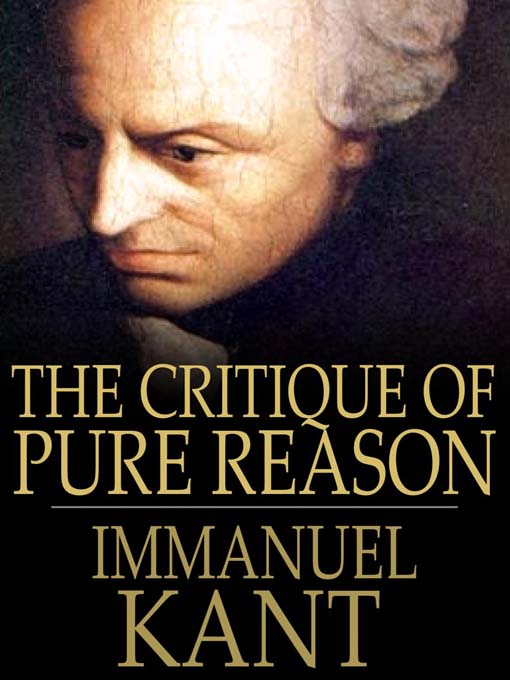Title: Critique of Pure Reason
Date: 1781
Nationality: Germany
Creator: Immanuel Kant
Medium: Print
The light dove, in free flight cutting through the air the resistance of which it feels, could get the idea that it could do even better in airless space. Likewise, Plato abandoned the world of the senses because it posed so many hindrances for the understanding, and dared to go beyond it on the wings of the ideas, in the empty space of pure understanding.
Immanuel Kant, Critique of Pure Reason
Kant’s First Critique demonstrates the paradigm changing force of the
application of synthesis—as his mind adjusted for new concepts in science,
religion, epistemology, and metaphysics, he was forced to reorient his entire
world view until those concepts could fit together into a cohesive body of
knowledge with as few contradictions as possible, thereby producing a landmark monument
in the history of learning. Kant, then,
demonstrates what might be called the closest thing to a “full synthesis” a
complete and thoroughgoing process where all possible connections for an
integrated body of knowledge is pursued to their ultimate ends, so far as they
can be perceived. The personal integrity
and discipline of this full synthesis is worthy of praise and ought to be
emulated at all levels where possible.
Image taken from: www.beingandtim.com

No comments:
Post a Comment